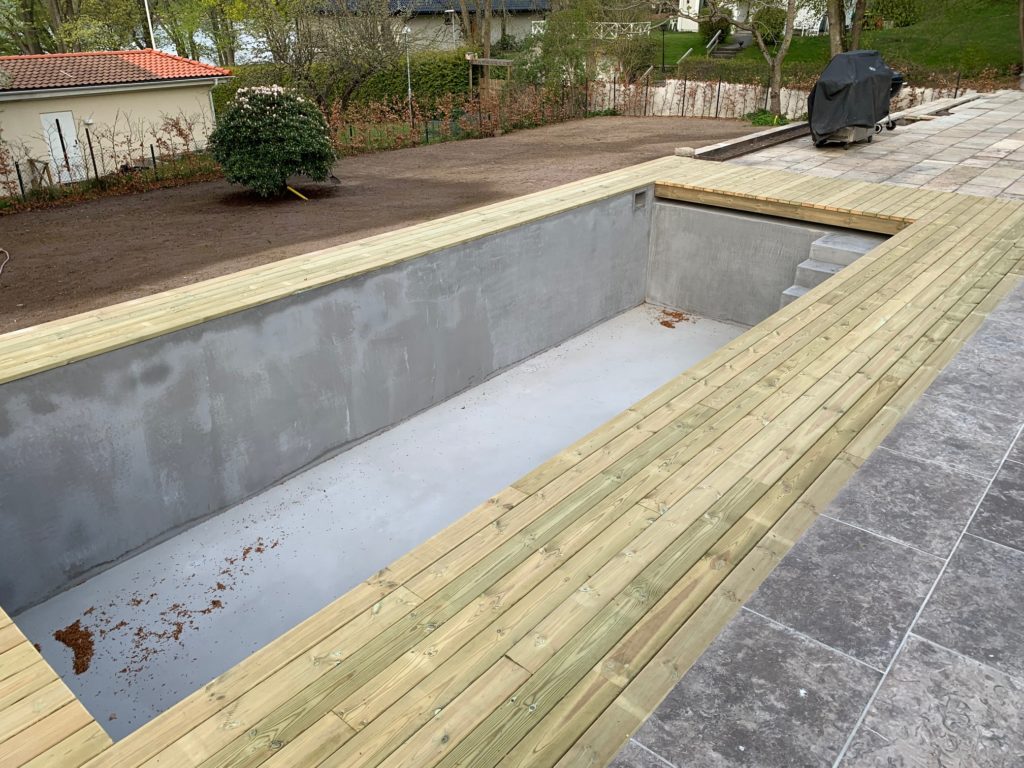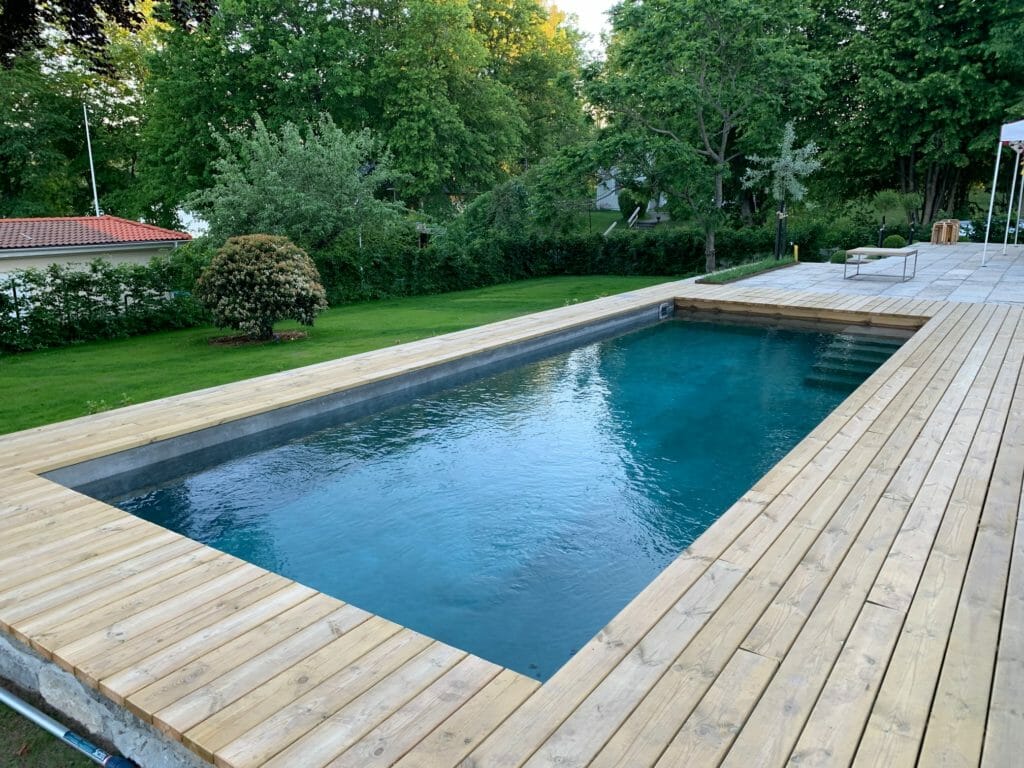Waterproof swimming pool with Cementmix
With Cementmix you make a waterproof cement, because the mix replaces the water in then mixing proces of making cement. This gives the cement water-tightness, making it ideal for waterproofing your cement swimming pool.
Replacement of water for high water resistance.
Cementmix replaces water in the concrete mixing process. By using this liquid you prevent concrete rot, rising damp and much more negativity regarding water based damage. The material also helps prevent mold and algae growth. Another nice incidental property is that the mix forms a permanent solution and therefore no repeat treatment is required. You can use the mix to make your concrete/cement pool waterproof. Because of its water and dirt-repellent properties, the surface cannot be painted over, but it can be tiled. The mix replaces water in the mixing process of all types of cement, mortar, grout and is easy to apply, just like water really. You will enjoy a professional result, as seen in this example of a swimming pool in the beautiful town of Danderyd in Sweden, which is waterproofed with Cementmix.


Waterproofing a swimming pool
Concrete is used for the construction of almost all swimming pools, but when you use water, water-tightness problems can arise. Swimming pools mainly have concrete floors, but sometimes this is also used for the foundation or for the walls. You can run this yourself, depending on the quantity you need. The mix is available in different packages from 1 to 25 liters, and is suitable for any type of cement. First start with a sample to get a feel for the product, because the drying process is slightly faster than with normal water.
No tiles required
Normally you should apply tiles to ensure that no water drains from the bath. This is not necessary by making concrete mortar with the mix for cement instead of water, but it is of course possible. Make sure that the tiles, joints and tile adhesives you use are sufficiently resistant to the cleaning techniques and chemical products used in swimming pools. Choosing the right tiles is not easy and often very expensive. The tiles must be able to withstand the water pressure when they are under water and back pressure when the pool is empty. In winter, the tiles in this case are also subject to freeze and thaw damage
Make masonry mortar
Cement is a finely ground binder that hardens by adding water or for waterproof cement by adding the special cement mix. Mixing the binder with other materials, such as sand or lime, creates masonry mortar that you can use for laying brick joints, a wall and so on. Concrete is also made on the basis of cement, but instead of sand it is mainly mixed with gravel.
You need a masonry tub and a bucket to make masonry mortar and preferably also a mixer, especially for larger quantities. It is also possible to use a trowel to mix the masonry mortar if you do not have a mixer. You also need a trowel for the masonry itself. First of all, mix the dry substances well before adding liquid. It is important to always use clean materials for the highest possible quality. You can easily check whether you have maintained the correct proportions by drawing a slot in the mortar tray. Does it keep its shape and not fill the slot with liquid? Then the proportions are correct. Do not make too much grout at once, because it will dry out.